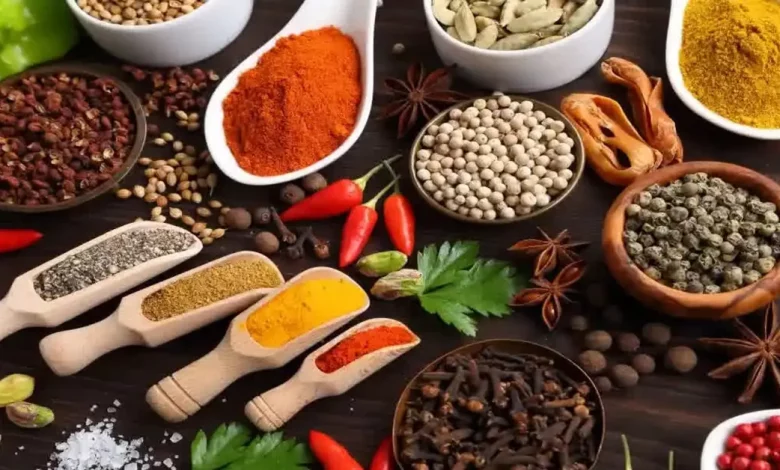Daily Current Affairs for UPSC
7th meeting of Codex Committee On Spices And Culinary Herbs
Syllabus: Governance[GS Paper-2]

Context: The 7th session of the Codex Committee on Spices and Culinary Herbs (CCSCH) took place in Kochi, India, marking the committee’s first in-person meeting since the Covid-19 pandemic. Delegates from 31 countries participated in the event.
About the Codex Committee on Spices and Culinary Herbs:
- CCSCH is The Codex Committee on Spices andCulinary Herbs which forms a sub-body of the Codex Alimentarius Commission (CAC).
- This committee has been established in the year 2013 and since then; it is hosted by India.
- The Spices Board India is the organisation which channels efforts to ensure that meetings and activities of this committee meet objectives.
- The official sessions, not be forgotten are also accompanied by electronic working groups (EWGs), which can be led to all countries.
- They cooperate to elaborate standards based on scientific evidence.
Key points of the 2024 Session:
- The 7th session of the CCSCH took place in Kochi, Kerala from January 29th to February 2nd, 2024.
- During the session, quality standards were established for five spices including small cardamom, turmeric, juniper berry, allspice, and star anise.
- The committee also successfully implemented the strategy of grouping spices and finalised the first group standard for spices derived from fruits and berries, which included juniper berry, allspice, and star anise.
- Additionally, proposals for developing Codex standards for Dried Coriander Seeds, Large Cardamom, Sweet Marjoram, and Cinnamon were approved by the committee.
Codex Alimentarius Commission:
- Codex Alimentarius Commission is an international body which develops standards of human food at the global level.
- It was established by FAO and WHO, in Rome Italy.
- The commission has 189 members which include India and it works through numerous committees based in member countries.
- It convenes annually in Geneva and Rome, utilising the six official languages of UN.
- It is funded by WHO and FAO, as well its standards are recognized in the world trade body –WTO- for reference purposes during resolution of cases involving food safety aspects.
- These standards are more of a voluntary nature but member countries adopt them for their national standards.
- The work of the commission contributed to global harmonisation in food quality, fair trade and provision of better consumer safety standards.
Spices Board of India:
- The Spices Board of India, established under the Spices Board Act in 1986, operates under the Ministry of Commerce and Industry.
- Its main responsibilities include the production and development of cardamom and promoting the export of 52 spices listed in the Act.
- The board conducts research and regulates the domestic marketing of small and large cardamom, improves the post-harvest processes of all spices, promotes spice exports, provides assistance to exporters in various areas, develops spices in the NorthEast region, regulates the quality of spices for exports, and serves as a link between Indian exporters and foreign importers.
- The board is headquartered in Kochi, Kerala, and is led by a Chairman with a rank equivalent to that of a Joint Secretary to the Union Government.
- It also operates regional laboratories in Mumbai, Chennai, Delhi, Tuticorin, Kandla, and Guntur.
Source: Business standard





.png)



